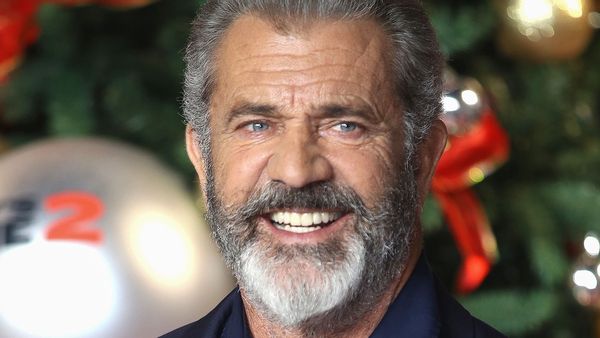The Shocking Truth Behind “Sound of Freedom” and the Controversies Surrounding Hollywood
In the glitz and glamor of Hollywood, where controversies and scandals are the order of the day, a certain film has managed to slip under the radar, despite its profound subject matter and explosive revelations. Directed by Alejandro Gómez Monteverde, “Sound of Freedom” is a powerful film that takes audiences on a harrowing journey into the dark world of human trafficking, exposing the sinister methods used by powerful figures to exploit the vulnerable.
At the center of this film is the story of Tim Ballard, portrayed by the renowned actor Mel Gibson. Ballard, a former government agent, leaves his position to establish Operation Underground Railroad, an organization dedicated to rescuing children from the clutches of human traffickers. The movie aims to bring to light the horrifying realities of this illegal industry and to inspire action against it.

However, despite the urgency and significance of the film’s message, “Sound of Freedom” has faced an uphill battle in gaining the attention it deserves. Major streaming platforms such as Amazon, Netflix, and Hulu have shockingly rejected the film, denying it the global exposure it so desperately needs. This puzzling decision has led many to speculate whether the movie’s revelations hit too close to home for some in the entertainment industry.
Adding to the intrigue, influential celebrities who are usually quick to champion social causes have remained conspicuously silent about “Sound of Freedom.” The Hollywood elite, it seems, have collectively turned a blind eye to a film that exposes the very secrets that some believe they may be complicit in hiding. This lack of support raises serious questions about the true dedication of these figures to social justice and human rights.

One of the most surprising aspects of this story is the involvement of Disney. After acquiring 21st Century Fox, Disney shelved “Sound of Freedom,” sparking speculation about the reasons behind this decision. Industry whispers suggest that powerful entertainment giants like Disney, Netflix, and Amazon Prime may have deliberately avoided the film to suppress the truth about exploitation and trafficking from reaching a global audience. Some believe these companies may be protecting a specific group of influential elites who wield significant power behind the scenes.
The film, starring a major actor like Mel Gibson and backed by an established director, was expected to be a major release. Yet, it has struggled to find its way into cinemas, leading to even more speculation about the forces at play. The involvement of figures like Bill Gates, George Soros, Warren Buffett, and Oprah Winfrey in secretive meetings only adds to the intrigue surrounding this story. The “Good Club,” an exclusive gathering of billionaire philanthropists, has been rumored to have hidden motivations far more sinister than their public personas suggest.

Oprah Winfrey, in particular, has found herself at the center of speculation. Known as a billionaire talk show host and philanthropist, Oprah’s connection to figures like Harvey Weinstein has raised eyebrows. Despite Weinstein’s well-known reputation as a predator, Oprah maintained a close relationship with him, leading some to question her true intentions. Moreover, her decision to feature self-proclaimed healer John of God on her show—a man later exposed as a criminal—has further tarnished her public image.
John of God, a Brazilian healer who claimed to possess extraordinary spiritual powers, attracted vulnerable individuals seeking solace. However, beneath his facade lurked a dark reality. Reports of his criminal activities eventually surfaced, painting a chilling picture of a man exploiting those who sought his help. Oprah’s decision to feature him on her show inadvertently granted him legitimacy, exposing him to a broader audience and raising questions about her role in promoting such a figure.

The controversies don’t stop there. Oprah’s Leadership Academy for Girls in South Africa, established in 2007, has also been mired in scandal. The school, which was meant to be a beacon of hope, became a breeding ground for controversy, with accusations of illegal human exploitation and mistreatment of students surfacing over the years. Despite Oprah’s efforts to address these issues, the school’s reputation has been deeply damaged, further complicating her public image.
The release of “Sound of Freedom” has brought these issues to the forefront, forcing a re-examination of the powerful figures in Hollywood and their potential complicity in the dark underbelly of the entertainment industry. As the film continues to struggle for recognition, it serves as a stark reminder of the challenges faced by those who seek to expose the truth, and the lengths to which some will go to keep that truth hidden.
Is Oprah really behind all of this? The evidence remains circumstantial, but the questions raised by “Sound of Freedom” and the controversies surrounding it are too significant to ignore. The film’s message is clear: awareness is the first step in eradicating this crime. But as the silence from Hollywood shows, awareness alone may not be enough to bring about the change that is so desperately needed.